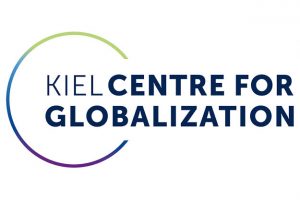KCG Researchers Work on a new GIZ Project on FDI Promotion in Africa

Foreign direct investment (FDI) in Africa is low and there has been no significant growth in recent decades. While the FDI stock worldwide has increased from 20.3 trillion USD in 2010 to 33.5 trillion USD in 2017, the comparable figures for the African continent are only 598 and 867 billion USD respectively (UNCTAD, 2018). This means that nowadays only 2.6 percent of all FDI worldwide goes to Africa. With the very limited amount of FDI going to Africa, African countries cannot benefit from the positive economic and societal impact of FDI as evidenced by many previous empirical studies. They cannot gain adequate access to, for example, financial resources, more advanced techniques and technologies, know-how and human resources etc. that multinational enterprises (MNEs) may generally bring into the countries of investment. The lack of such access poses an urgent and critical challenge to long-term economic and societal development in Africa.
Against this background, a new research project led by Prof. Holger Görg, Ph.D. (KCG Managing Director) is carried out to gain more insights into the FDI development in Africa in general and the FDI-related institutional and political challenges, policy measures and firm activities on site in particular. The project is funded by Deutsche Gesellschaft für internationale Zusammenarbeit (GiZ). KCG Researchers, Saskia Mösle and Frauke Steglich, as well as Olivier Godart, Ph.D. (Kiel Institute for the World Economy) are involved in the project. The project team starts with analysing the investment activities of MNEs in Africa and comparing them with FDI in other regions of the world. Building on this, it discusses related government policies – implemented by the FDI home countries and the FDI host countries – to promote investment in Africa. The discussion aims at examining the relevance and importance of such policies for FDI and ultimately for economic and societal development in Africa. Policy implications will be derived from the research insights and evidence obtained to help further develop related policies.



 KCG Projects
KCG Projects


